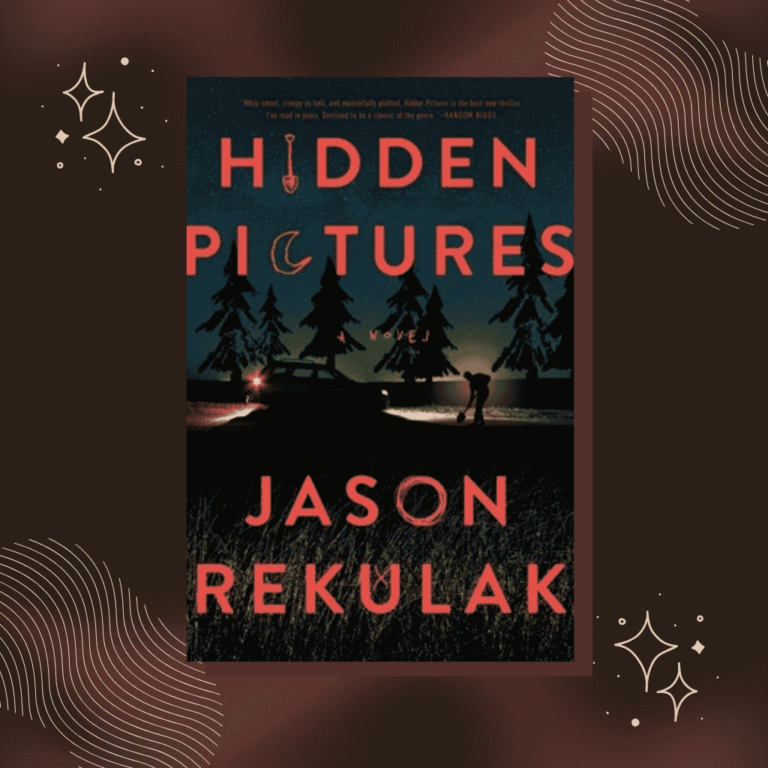Unlock the Magic: ‘Wayward’ by Emilia Hart Review
If you’re looking for a story that delves deep into the strength and resilience of women, ‘Wayward’ by Emilia Hart is a must-read. Whether you’re interested in the intersection of magic and reality or the empowering journey of women navigating a world that often seeks to hold them back, this book will surely resonate with you. Please pick it up, dive into the gripping world of Altha, Violet, and Kate, and discover how these women find their power, defy expectations, and claim their independence. It’s a beautifully written and emotionally charged novel that will stay with you long after the last page. So, grab a copy today and let the story of survival, strength, and empowerment inspire you. If you want to explore further and dive deeply into Secrets and Magic in a Reunion, then read a deep review which is given below

Gripping Yet Disturbing Themes
When I first picked up ‘Wayward’ by Emilia Hart, I expected a story about witches, but what I got was so much more. The female-focused, multigenerational story spans across the lives of three women—Altha, an accused witch in the 1600s; Violet, a teenager in the 1930s living in an isolated English manor; and Kate, a modern woman fleeing her abusive boyfriend. Each woman’s experience is deeply shaped by their bloodline, a lineage of strong women who must survive and blossom despite the male-dominated worlds they inhabit. The book delves into some truly miserable and uncomfortable situations, including rape, assault, and domestic violence, highlighting how these women are forced to endure extremes to find their strength. The trigger warning for these difficult themes is essential, but they make the moments of triumph feel all the more impactful. It’s impossible to look away from their stories, especially when the men in their lives try to force them into corners, making us rethink how society often fails to protect women.
A Unique Blend of Magic and Reality
What I wasn’t prepared for was the level of magic that runs throughout ‘Wayward’. While the book doesn’t fall squarely into the fantasy or occult genres, it certainly nods to both with its subtle yet captivating elements of the supernatural. The women’s supernatural affinity for the natural world, particularly insects and birds, adds a layer of mysticism that is integral to the story. But this isn’t just whimsical magic—it’s grounded in their lived experiences. ‘Wayward’ doesn’t shy away from grim realities. There are deeply unsettling moments, such as still births, grizzly abortion, and shocking portrayals of violence, yet these moments only serve to deepen the emotional weight of the novel. The blurry villains—the Bad Men—are not easily defined, and the women must rely on their inner strength to navigate the traumatic paths they’ve been handed. The book manages to show us both the beauty and the brutality of life, as the characters’ stories alternate between personal tragedies and small victories. In the end, it’s not just about witchcraft or the occult, but about how women, despite everything, find a way to survive and thrive.
A Story Across Generations
Wayward weaves the lives of three women—Altha, Violet, and Kate—who live in different centuries but share a common struggle for survival. Altha, living in the 17th century, is accused of witchcraft after a violent death of a farmer. This grimy prison where she is held serves as a stark reminder of the superstition and suspicion that plagued women in her time. Her plight resonates with Violet, who, in the midst of World War 2, suffers under the abusive control of her father, a drunkard and a brute. Despite her father’s disregard for her, Violet manages to survive, leaning on her brother for protection. Fast forward to 2019, and we meet Kate, who is escaping an abusive ex-boyfriend. Her situation is eerily similar to the seventeenth-century struggles of Altha—she too faces social isolation, as her ex-boyfriend stalks her, installing spyware on her phone and trying to control her every move. Kate finds refuge in the Weyward house in Cumbria, a strange, cottage-like home where she uncovers trinkets, boxes, and letters that seem to connect her to the earlier Weyward women. They all share a gift—the ability to harness the power of nature, using insects and birds to protect themselves. The magical realism of their stories is a thread that binds them across the ages, creating a supernatural link between women who have long been overlooked by men in their respective times.
Resilience in the Face of Adversity
The core message of Wayward is a celebration of resilience. Altha, Violet, and Kate each face a world that seeks to limit their power. The patriarchy and dangerous situations such as abuse, restrictive home life, and social isolation threaten to break them, yet they persist. Altha uses her connection with nature to fight against the oppression of witchcraft accusations, Violet defies her father’s control and struggles against a cruel world that treats her as less than, and Kate escapes from an abusive relationship, proving that women are stronger than society gives them credit for. Even when the world seems determined to push them into corners, they refuse to be silenced. The book touches on the sisterhood between these women, not just across generations, but also through the magical realism that is woven through their experiences. Wayward is not just a story about witchcraft or women’s struggles, it’s a testament to the power of womanhood in the face of overwhelming adversity. The message here isn’t just about survival; it’s about strength, about embracing your gifts, and about finding a way to thrive, even when life seems unreasonably cruel.
Women’s Struggles and Strength
In ‘Wayward’, Emilia Hart intricately weaves the lives of three powerful women: Altha, Violet, and Kate. Though separated by centuries, their stories echo the same theme of strength in the face of adversity. Altha, accused of witchcraft, faces a grim reality, living in an era of superstition and suspicion. As she is put on trial in the seventeenth century, her story unfolds with moments of anger, resilience, and tragedy. In stark contrast, Violet is raised in a sheltered life by her controlling father after her mother’s death, isolated from the outside world and the nature she feels drawn to. Her father’s tight control and wishes shape her life, but a hidden love for books and a sense of naivety drive her toward inevitable change. Kate, a modern woman living in 2019, is trapped in an abusive relationship, desperately searching for sanctuary and peace in the Weyward family home. She finds letters, trinkets, and pieces of a history she never knew, all while trying to escape her abusive ex-boyfriend. Despite the pace of the book slowing at times, their stories are marked by the hope and strength they carry — women who, no matter the century, face life with determination.
Empowerment Through Adversity
The narrative of ‘Wayward’ powerfully showcases how the women—Altha, Violet, and Kate—each, despite the overwhelming forces against them, carve their own paths. Their struggles with oppression, abuse, and misogyny ultimately lead them to growth and empowerment, making it clear that the power of womanhood is not just about surviving, but about thriving, even in the face of overwhelming adversity. Violet’s life is marred by family obligations and control, yet she finds solace in her inner strength and an inevitable salvation as the story moves toward its tragic conclusion. Kate, though less connected to her ancestral past, learns to embrace her self-sufficiency and strength, ultimately discovering her own control over her future. The novel emphasizes the importance of not needing a man to define purpose or fulfillment. Altha, facing the realities of being a woman in a time of patriarchal dominance, pushes through her struggles with magic, rebelling against societal constraints. As these women navigate a world that often runs over them, they emerge as the great masters of their fate, reincarnated through history and filled with a sense of hope for what they can become. The story captures the message that, no matter the century or circumstances, women possess the power to create their own future, unburdened by the confines of the past.
Identity, Power, and Awakening
As a pregnant woman myself, the themes of Weyward really hit home, especially the way it touches on the intersecting struggles of women in a patriarchal society. The story explores the powerful identity of each character as they navigate their journey toward awakening. Altha (1619), Violet (1942), and Kate (2019) are each forced to confront their roles in a world that dismisses them. Their fight against misogyny, male dominance, and societal expectations is real and raw. I couldn’t help but resonate with the feelings of being told we’re “strange” for thinking outside the box or not adhering to the norm. The idea of embracing being weyward and how that allows these women to tap into their power is central to the story. There are moments when I felt deep gratitude, grief, and even a bit of devastation, realizing how much women have to endure and how much we still fight for our freedom in today’s world. I, too, sometimes wonder how to best protect my own daughter from this relentless cycle.
Embracing Strength and Struggles
Despite the tame magic that only subtly appears, the power of this book lies in the inner strength and resilience of its characters. The natural world plays a large role, where women learn that their strength doesn’t come from outside influences, but from within. I really enjoyed the tension that builds throughout the novel, despite some moments feeling predictable. The way the story shifts between different time periods and characters keeps you engaged, yet there is a feeling of pacing that starts slow and steady but eventually rushes toward the end. As a reader, I was sucked into their stories — particularly Kate, whose growth from feeling weak and lacking in personality to realizing her independence is truly satisfying. It’s a beautifully written book about finding strength, surviving adversity, and reclaiming your autonomy in a world besieged by misogyny. While I didn’t expect the themes to be so deep, I’m thankful for the way Weyward stirred so many emotions within me — emotions that will only grow as I continue my journey in womanhood.






